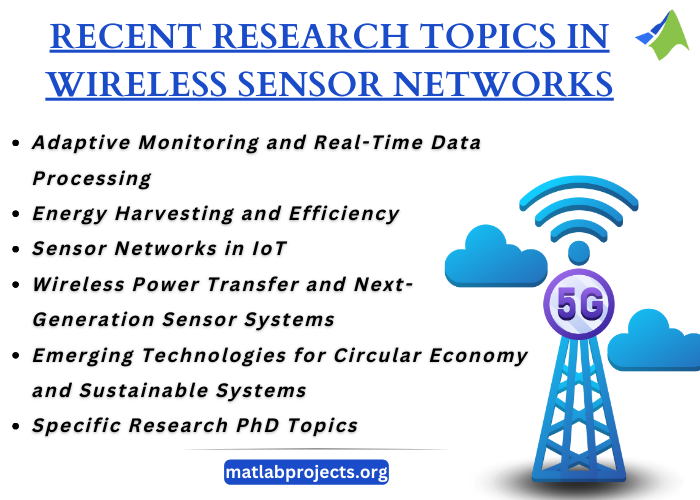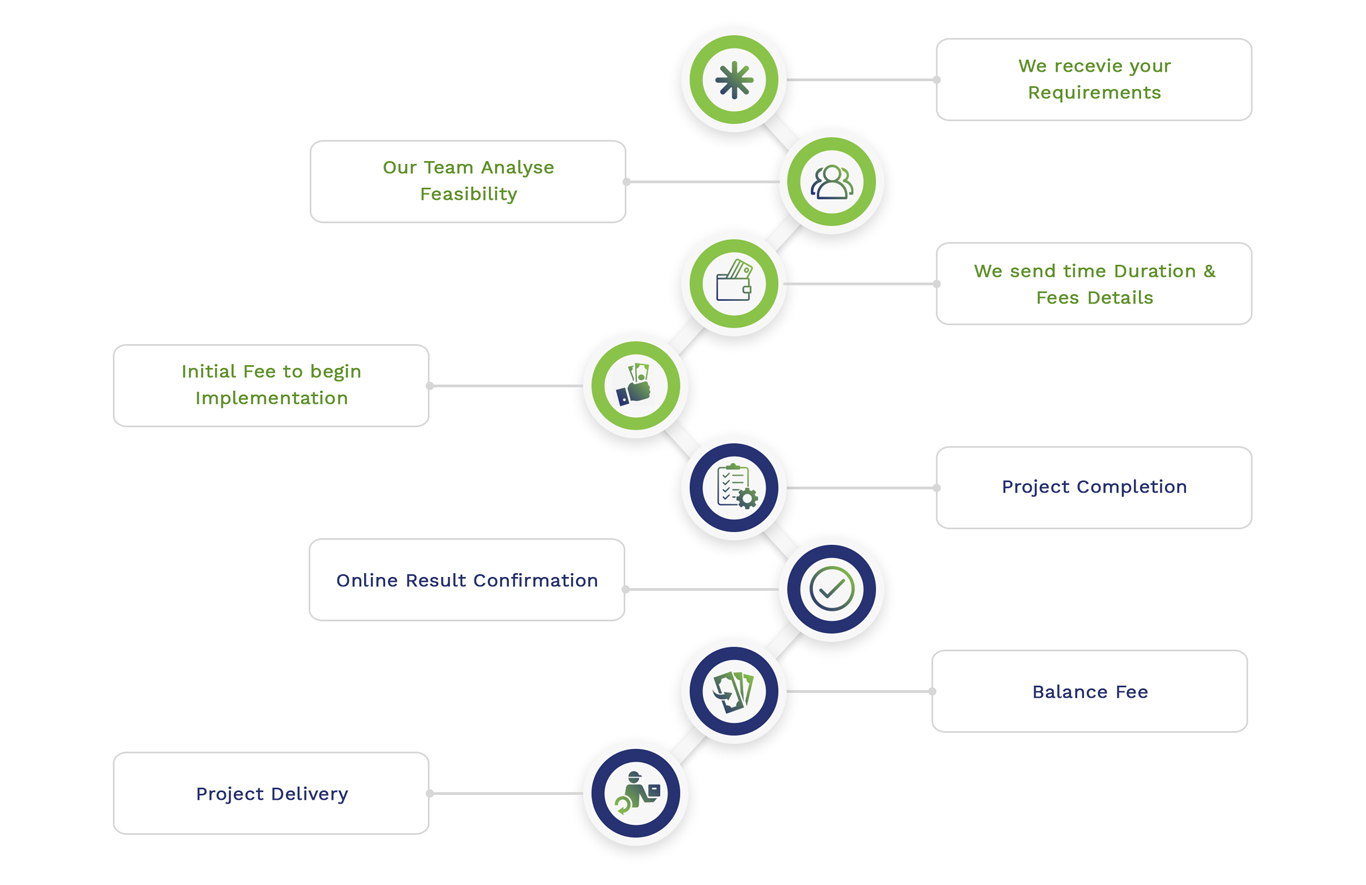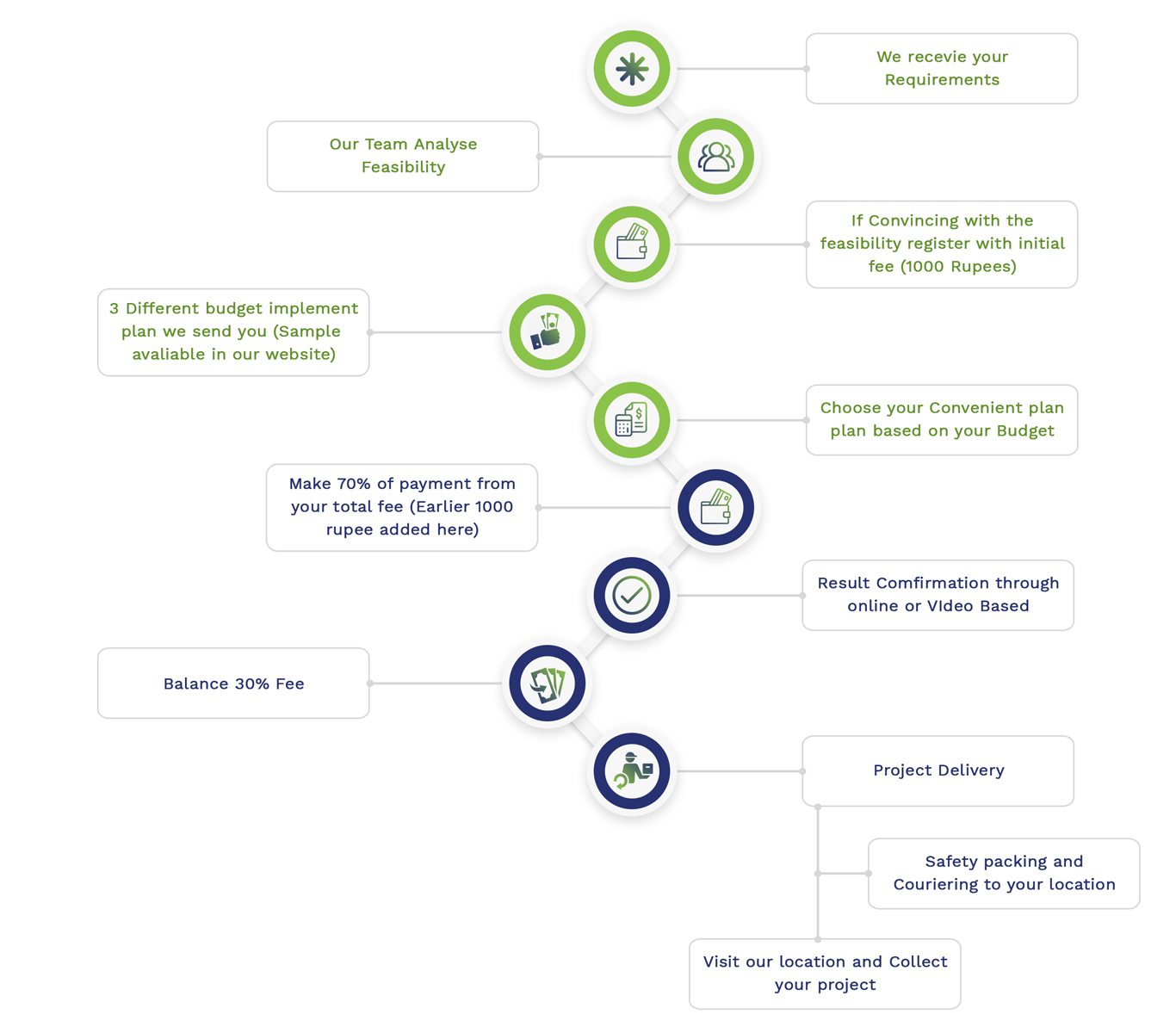WSN (Wireless Sensor Networks) is a very popular domain which is broadly applicable in many areas to solve the specific issue. In terms of WSN (Wireless Sensor Network), the existing study mainly concentrates on novel and significant areas. The experts at matlabprojects.org excel in creating innovative wireless sensor networks to enhance your research endeavors. Additionally, we provide a plethora of intriguing PhD research topics in wireless sensor network to enrich your work. Feel free to share your research inquiries with us, and we will provide you with our top-notch services. Here, few remarkable and worthwhile topics on WSNs are proposed by us:
- Adaptive Monitoring and Real-Time Data Processing:
For real-time node breakdown localization, this study is very essential and it is progressing towards the direction of adaptive monitor placement tactics. To get accustomed to topology modifications, it includes the application of network tomography for creating productive techniques and tracing the miscarriages. As compared to conventional techniques, it boosts up the process.
- Energy Harvesting and Efficiency:
Specifically by means of energy harvesting methods, another main focused area is development of energy efficiency in WSNs. For extended network operation, it improves the application of harvested energy and involves relay sections and it creates effective tactics for energy management.
- Sensor Networks in IoT:
Especially in health care, industry 4.0 and smart cities, novel problems are evolving due to the synthesization of WSNs (Wireless Sensor Networks) into the IoT (Internet of Things). Secure data analysis and low-power communications are the major concerns of this area. To improve the potential and security of WSNs among the IoT ecosystem, it synthesizes technology like machine learning and blockchain.
- Wireless Power Transfer and Next-Generation Sensor Systems:
To power sensor networks in the developing pattern, intensely investigate the wireless power transfer systems. For transferring power to devices, it crucially explores the application of electromagnetic energy harvesting, battery-less sensors and passive RFID technology. It possibly reconstructs the sensor networks, in what way it might be utilized and preserved.
- Emerging Technologies for Circular Economy and Sustainable Systems:
This area is an evolving concern about rising technologies like 5g networks and distributed ledger technologies on how it assists socio-technical systems and progression to a circular economy. Recyclable sources in innovative businesses, operational systems, novel application of sensor networks to supervise and distribute are incorporated in this sector.
- Specific Research PhD Topics:
In this domain, selecting a topic for those who are performing PhD involves energy models for WSN simulation, sleep scheduling, blockchain technology for security, secrecy, integrity problems in WSN systems and network area segmentation. Adaptability, network longevity, energy consumption, capability and expenses are the main objectives of performance analysis.
Which algorithm is used in WSN?
The WSN domain addresses the network issue through implementing its productive algorithms. We provide main techniques which are efficiently deployed in WSN (Wireless Sensor Networks) accompanying with elaborate details of each algorithm:
- LEACH (Low-Energy Adaptive Clustering Hierarchy)
For the purpose of improving the energy efficiency of WSNs (Wireless Sensor Networks), LEACH (Low-Energy Adaptive Clustering Hierarchy) is specifically tailored, which is a prevalent routing protocol. Where one node performs the role as cluster-head, as sensor nodes arrange themselves into local clusters, this algorithm exhibits hierarchical clustering mechanisms. From the nodes in the cluster, these cluster-heads gather data and to decrease response time, it accumulates and finally it transfers to the base station. As a consequence of this approach, it considerably decreases energy usage by reducing the distance across the individual nodes which should transmit their data. Throughout the network, the energy consumption is distributed equally by means of LEACH which occasionally rotates the role of cluster-heads between the nodes.
- PEGASIS (Power-Efficient Gathering in Sensor Information Systems)
The energy efficiency is sufficiently improved by these PEGASIS mechanisms that mainly highlights chain-based data aggregation, this algorithm is highly beneficial and advanced as compared to LEACH. The PEGASIS process takes place as the nodes are efficiently gathered in a chain, where each node accepts the data from the prior node, accumulates it and transmits it to the subsequent node. Up until the data arrives at a specified node which passes the collected data to the base station, this process is still continued. This Power-Efficient Gathering in Sensor Information Systems (PEGASIS) increases the network longevity and minimizes the energy consumption through reducing the number of transmissions.
- TEEN (Threshold Sensitive Energy Efficient Sensor Network Protocol)
Considering time-sensitive applications, TEEN (Threshold Sensitive Energy Efficient Sensor Network Protocol) is particularly developed which identifies at which point the sensor nodes have to respond to immediate modifications in the monitored parameters. As same as LEACH, it deploys hierarchical approach, but it incorporates threshold-based data transmission policies. It importantly preserves energy and decreases the number of transmissions through these nodes which transfers data once the monitored metrics surpasses the definite threshold values. For applications such as intrusion detection, where rapid response to modifications is significant, this TEEN algorithm is primarily relevant.
- Directed Diffusion
To specify data aggregation and query-driven communication, directed diffusion is broadly applied which is an effective data-centric routing protocol. This process involves the base station which transmits interest (a query) for particular data that disperses through the medium of the network. It still continues the diffusion process, till it reaches nodes with appropriate data. Depending on the determined interest, these nodes start to pass data back towards the base station through the shielded path. This directed diffusion techniques seek to collect and transfer accurate data in an effective manner and also it decreases the outdated transmissions.
- Secure Data Aggregation Techniques
Primarily in applications which manage sensible data, security is a critical importance in WSNs (Wireless Sensor Networks). While it is accumulated and transferred through the network, this secure data aggregation method intends to assure the secrecy and reliability of data. To encrypt data at sensor nodes, these methods frequently include cryptographic techniques. This method keeps from being decrypted at intermediate nodes to maintain secrecy and security by verifying the data, whether it is aggregated properly.

Recent Research Ideas in Wireless Sensor Networks
Wireless Sensor Network PhD Research Topics are essential for achieving excellence. Nowadays, smart sensors have the capability to detect both static and dynamic environments. These sensors are utilized in various fields including body, industrial, and agricultural sectors. Our platform offers cutting-edge Research Ideas in Wireless Sensor Networks for PhD/MS students to pursue their academic goals.
- The application of wireless local area network technology to the control of mobile robots
- Networking without Dynamic Host Configuration Protocol server in Ethernet and Wireless Local Area Network
- Frequency offset and I/Q imbalance estimation for orthogonal frequency division multiplexing based wireless local area networks
- A control-engineering approach to integrated congestion control and scheduling in wireless local area networks
- Impact of bursty error rates on the performance of wireless local area network (WLAN)
- Localization based on TDoA projection for autonomous vehicles in 6G cellular networks
- An eSIM-based remote credential provisioning and authentication protocol for IoT devices in 5G cellular network
- Implementability improvement of deep reinforcement learning based congestion control in cellular network
- Information theory based clustering of cellular network usage data for the identification of representative urban areas
- On reducing energy cost consumption in heterogeneous cellular networks using optimal time constraint algorithm
- Multi-agent deep reinforcement learning based resource management in SWIPT enabled cellular networks with H2H/M2M co-existence
- Dynamic power allocation in cellular network based on multi-agent double deep reinforcement learning
- A matching-theoretic approach to resource allocation in D2D-enabled downlink NOMA cellular networks
- Holistic Resilience and Reliability Measures for Cellular Telecommunication Networks
- A value-added IoT service for cellular networks using federated learning
- A survey of longitudinal changes in cellular network architecture: The good, the bad, and the ugly
- Network load prediction and anomaly detection using ensemble learning in 5G cellular networks
- Remote Registration and Group Authentication of IoT Devices in 5G Cellular Network
- Gene expression networks involved in multiple cellular programs coexist in individual hepatocellular cancer cells
- Optimizing the operator’s economy in multi-tier cellular networks with underlaid D2D communications
Subscribe Our Youtube Channel
You can Watch all Subjects Matlab & Simulink latest Innovative Project Results
Our services
We want to support Uncompromise Matlab service for all your Requirements Our Reseachers and Technical team keep update the technology for all subjects ,We assure We Meet out Your Needs.
Our Services
- Matlab Research Paper Help
- Matlab assignment help
- Matlab Project Help
- Matlab Homework Help
- Simulink assignment help
- Simulink Project Help
- Simulink Homework Help
- Matlab Research Paper Help
- NS3 Research Paper Help
- Omnet++ Research Paper Help
Our Benefits
- Customised Matlab Assignments
- Global Assignment Knowledge
- Best Assignment Writers
- Certified Matlab Trainers
- Experienced Matlab Developers
- Over 400k+ Satisfied Students
- Ontime support
- Best Price Guarantee
- Plagiarism Free Work
- Correct Citations
Expert Matlab services just 1-click

Delivery Materials
Unlimited support we offer you
For better understanding purpose we provide following Materials for all Kind of Research & Assignment & Homework service.
 Programs
Programs Designs
Designs Simulations
Simulations Results
Results Graphs
Graphs Result snapshot
Result snapshot Video Tutorial
Video Tutorial Instructions Profile
Instructions Profile  Sofware Install Guide
Sofware Install Guide Execution Guidance
Execution Guidance  Explanations
Explanations Implement Plan
Implement Plan
Matlab Projects
Matlab projects innovators has laid our steps in all dimension related to math works.Our concern support matlab projects for more than 10 years.Many Research scholars are benefited by our matlab projects service.We are trusted institution who supplies matlab projects for many universities and colleges.
Reasons to choose Matlab Projects .org???
Our Service are widely utilized by Research centers.More than 5000+ Projects & Thesis has been provided by us to Students & Research Scholars. All current mathworks software versions are being updated by us.
Our concern has provided the required solution for all the above mention technical problems required by clients with best Customer Support.
- Novel Idea
- Ontime Delivery
- Best Prices
- Unique Work
Simulation Projects Workflow

Embedded Projects Workflow



 Matlab
Matlab Simulink
Simulink NS3
NS3 OMNET++
OMNET++ COOJA
COOJA CONTIKI OS
CONTIKI OS NS2
NS2






